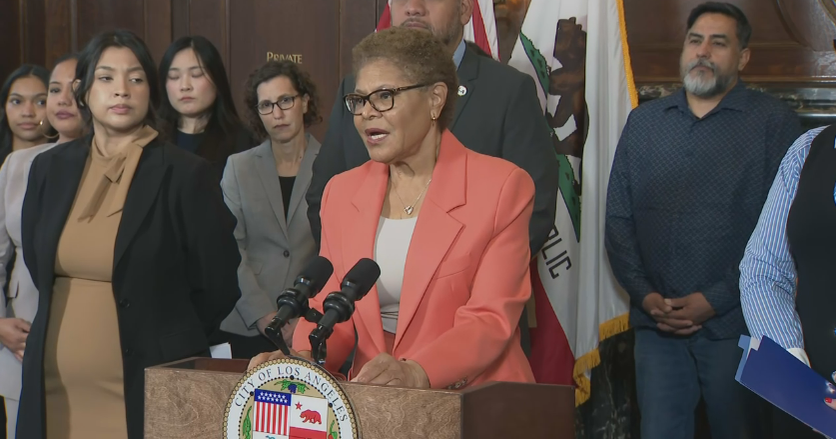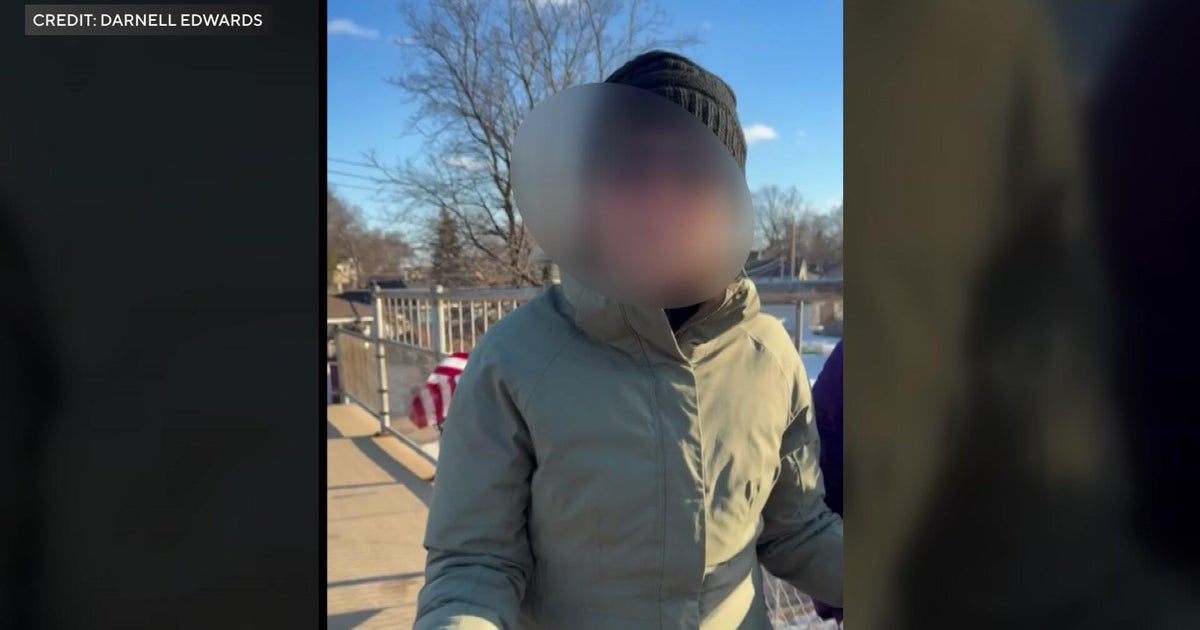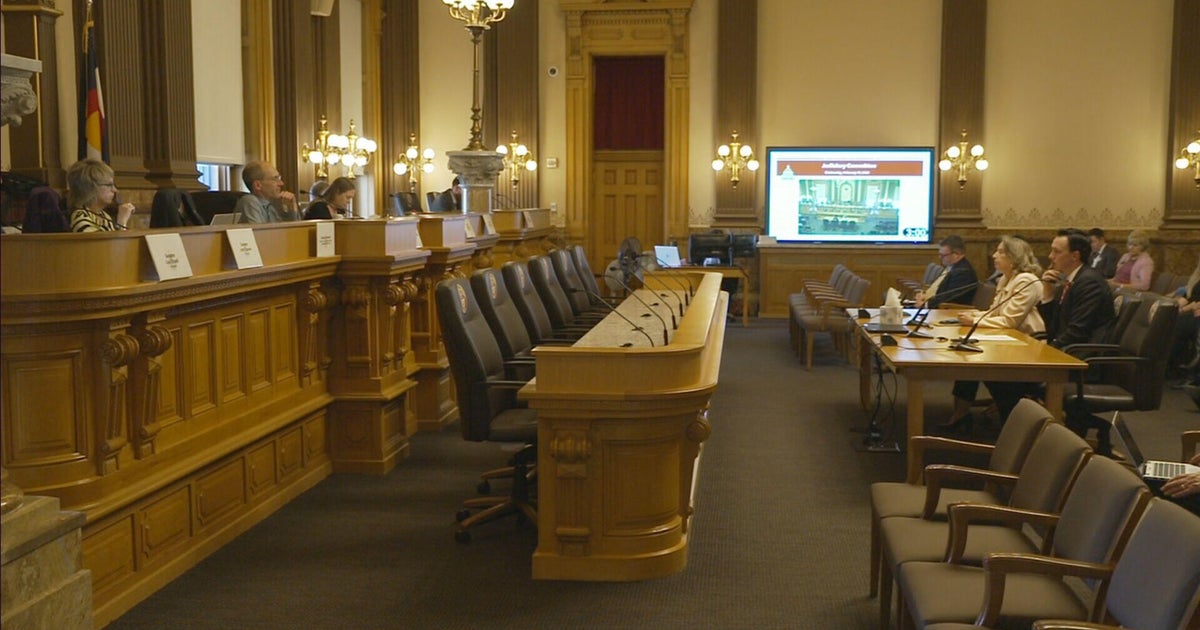Bratton, de Blasio Invoke Mandela At Rally With Rev. Al Sharpton
NEW YORK (CBSNewYork/AP) -- Soon-to-return NYPD Commissioner William Bratton and Mayor-elect Bill de Blasio said the example of Nelson Mandela should be used in New York City public policy and law enforcement, as they rallied with the Rev. Al Sharpton Saturday.
Bratton and de Blasio appeared with Sharpton Saturday morning at the National Action Network House of Justice, 106 W. 145th St.
"I like being a cop because I know what cops can do," Bratton told the audience. "My promise to you is that we will get it right."
Bratton, de Blasio Invoke Mandela At Rally With Rev. Al Sharpton
He invoked the late South African president, who died Thursday at the age of 95, as he addressed the crowd.
"There will be freedom and equality for all," he said, "and my commitment to you is that your police force, in your city, will be respectful. It will practice what Mandela preached."
Bratton, de Blasio Invoke Mandela At Rally With Rev. Al Sharpton
De Blasio noted at the rally that Mandela was a hero to many.
"He was like a father or a grandfather in one way for all of us, and he showed us in so many ways what it was to lead, to think of a new and different world that others couldn't see, to be an example in every sense," de Blasio said.
He also noted the importance of New York in the narrative of Mandela's life.
"To Mandela, this city was someplace special, because it was a place he turned over and over again for support and encouragement, and now it's up to us to live in his spirit," he said.
De Blasio said he hoped to use Mandela's example in leading the city.
"Anyone who tries to tell you that you can't have safety and constitutional rights at the same time, that you can't have a strong society and a fair society at the same time, I would remind them of the example of Nelson Mandela," he said. "And we have to strive for that kind of society. That's what we're here to do."
As WCBS 880's Jim Smith reported, Sharpton complimented Bratton's work with his group in Los Angeles, but promised the community back in New York will be keeping a watchful eye.
"He'll be back when we deal with things and we're not going to be always applauding when he comes back," Sharpton said.
Sharpton said there needs to be a balance between civil rights and stopping crime.
From the audience, George Espinal told 1010 WINS' Carol D'Auria he liked what he heard from Bratton.
"I think that he's going to do an incredible job here reforming police-community relations and really bridging the gap between the police and the community," he said.
But another audience member, Paulette Roker, thought just the opposite.
"I'm disappointed. Look what he did to L.A., and now he's coming to New York City?" she said. "He's not going to be any different than Kelly."
Another woman said she will give Bratton the benefit of the doubt, but she intends to hold his feet to the fire.
On Thursday, de Blasio announced that he had chosen Bratton to lead the department again.
The mayor-elect said Bratton is a "proven crime fighter'' who knows how to keep the city safe.
"I am choosing the best police leaders in the United States of America," de Blasio said. "He's focused on preventative strategies, proactive strategies, innovation, the use of the latest technology, but also good old-fashioned understanding that communication at the grassroots -- the cop on the beat talking to the neighborhood resident -- is fundamental to protecting our city."
Bratton is arguably the most important administration appointment for the incoming mayor. Bratton will succeed Ray Kelly, the NYPD's longest-serving police commissioner.
"You've heard me quote Commissioner Bratton over the last year or two, and as I came to know him, I knew that we were kindred," de Blasio told reporters during Thursday's announcement. "I knew it in my soul that we were kindred, that we shared the goals, the same beliefs and that we'd work well together."
Bratton ran the NYPD from 1994 to 1996, when he worked for Republican Mayor Rudy Giuliani. Their tactics are largely credited with beginning a sharp decrease in the city's crime rate.
He advocated a "broken window" theory of reducing crime, CBS 2's Marcia Kramer reported. He went after minor, petty crimes such as fare jumping in order to help reduce bigger crimes.
He also implemented the then-revolutionary CompStat method of tracking crime.
Bratton has also led the Boston and Los Angeles police departments. He has worked for several private security firms since 2009.
Check Out These Other Stories From CBSNewYork.com:
(TM and © Copyright 2013 CBS Radio Inc. and its relevant subsidiaries. CBS RADIO and EYE Logo TM and Copyright 2013 CBS Broadcasting Inc. Used under license. All Rights Reserved. This material may not be published, broadcast, rewritten, or redistributed. The Associated Press contributed to this report.)







